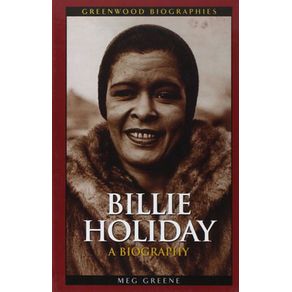Billie Holiday (1915-1959), the legendary jazz singer whose vocal stylings were deeply affecting, continues to enthrall. This biography conveys her hard-luck youth, career triumphs, and then decline and early death. At age 14, despite growing up with an absentee musician father, little schooling, a rape at 10, and jail time for prostitution, this extraordinary girl moved to New York City to find work as a dancer or singer. She soon became the toast of Harlem and went on to tour and record with the biggest names in jazz. Holiday's career took off in the 1930s, during the Depression, and the biography evokes the era and atmosphere of the jazz club scene. The state of race relations in the country is discussed as Holiday tours with white bandleaders such as Artie Shaw and even as she sings about lynching in the controversial Strange Fruit. The narrative further chronicles Holiday's relationships, descent into drug addiction, the subsequent diminishment of her talent, and tragic early death. Readers today will then want to seek out Holiday's recordings to more fully appreciate her interpretations of the songs of that classic era.



